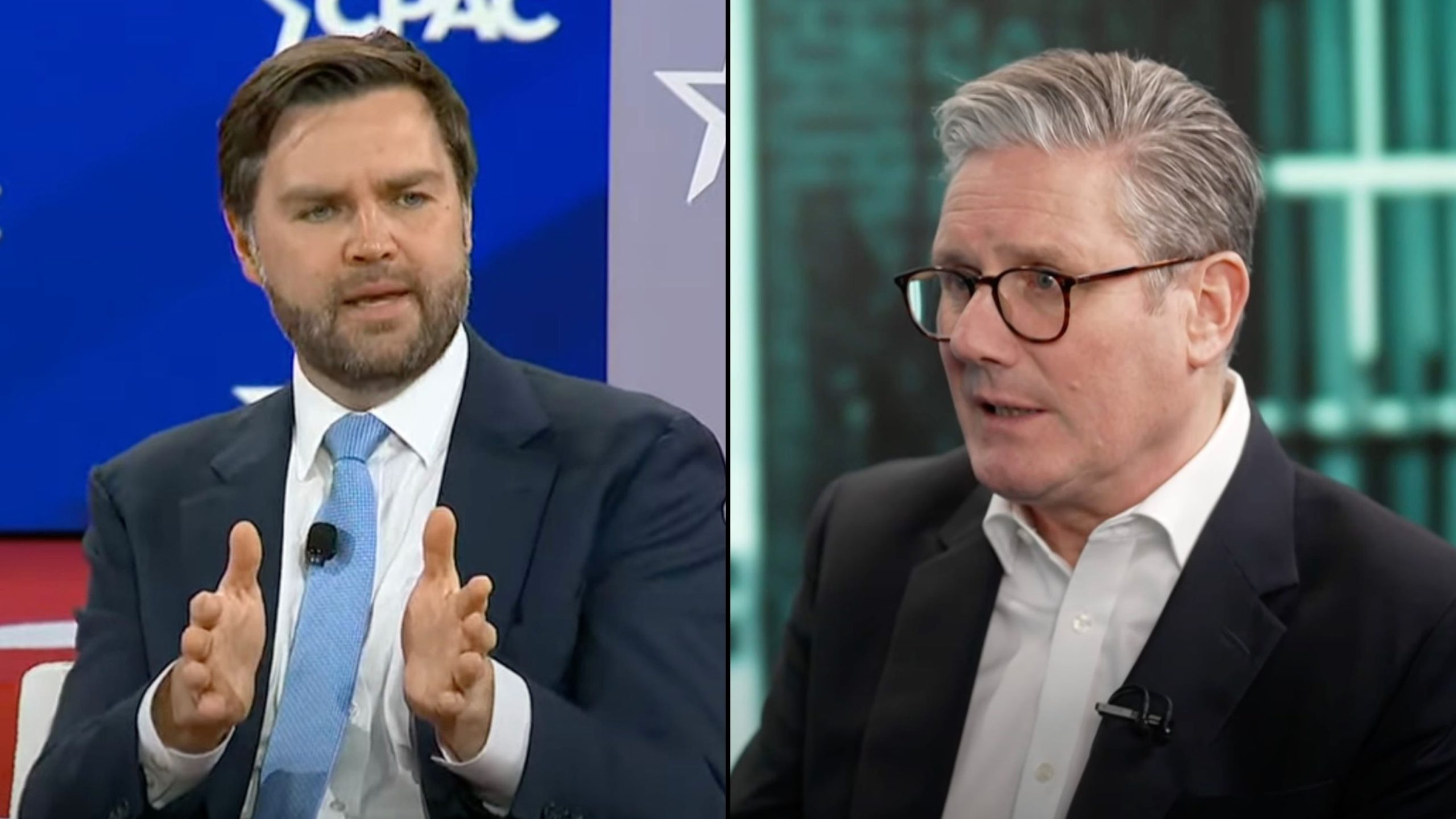UK Prime Minister Keir Starmer is in for a “treat” next week – his first visit to the US since the new administration took over.
Even before Vice President JD Vance touched on this visit in an exclusive interview published on Wednesday by the National Pulse, it was clear from the way the Anglo-American ties are developing (or, deteriorating) on a number of key issues, that Starmer’s trip could be a tense affair.
More: Keir Starmer’s Censorship Playbook
But now, Vance has confirmed that the topic of free speech will also be on the table. Not something the Trump administration considers one of the UK’s strong suits at the moment – in fact, London has been repeatedly criticized, particularly for its sweeping censorship law, the Online Safety Act.
The legislation has the unfortunate quality of at once managing to threaten free speech and big US tech company’s business interests.
Vance recently made waves at the Munich Security Conference when he schooled stunned EU and UK elites about many issues related to democratic practices and values that they like to declaratively support, but are in reality undermining – something the VP summed up as, “the treat from within.”
Vance at the time paid special attention to “our very dear friends, the United Kingdom,” citing examples of what he clearly considers to be a form of persecution of British citizens on religious and/or ideological grounds.
But, will Vance and other US officials repeat these and a host of other concerns, during meetings with Starmer?
“We certainly will,” he said. “This is not hard (…) We’re simply telling them to respect the values on which our civilization was founded, that you ought to debate with one another, your government should respect when the people have a dissenting viewpoint. It’s very simple, and it’s very obvious.”
Revisiting the issue of “shared values” – a mostly nebulous platitude that’s become popular among liberal governments and legacy media over the last years – Vance said that freedom of the people to express their disagreement with the authorities, without fear of legal ramifications, has to be “one of the most important shared values.”
During the interview, Vance also insisted that his Munich speech wasn’t designed to shift all the blame for the “censorship regime” that has developed to European governments, but pointed out that transatlantic cooperation, especially during the previous US administration, produced what he calls a common “censorship problem” – and one that President Trump now intends to tackle.













